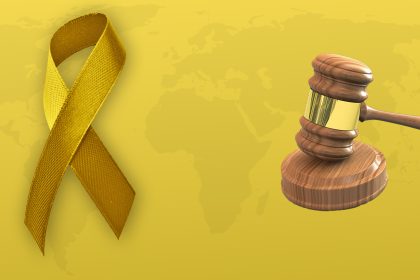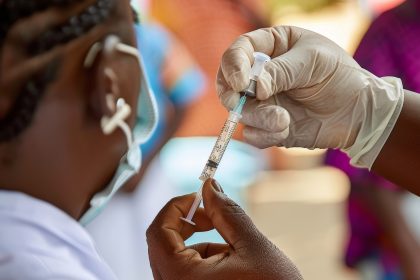Kenya’s Ministry of Health (MOH) says it has enhanced surveillance at all points of entry and counties to contain the fatal Sudan Virus Disease
One person has died following an outbreak of Sudan virus disease in Uganda, the World Health Organization (WHO) has reported.
The confirmed case is a nurse from Mulago National Referral Hospital in the capital, Kampala. The nurse had 45 contacts, including health workers and family members, who have since been traced and are under close monitoring.
According to the Centers for Disease Control and Prevention (CDC), Sudan Virus disease is a severe haemorrhagic fever that affects humans and other primates. It is caused by Orthoebolavirus sudanense, a viral species belonging to the same genus as the virus that causes Ebola virus.
Case fatality rates vary from 41 per cent to 100 per cent in past outbreaks, according to the CDC, which explains that it’s spread through direct contact with the blood, tissues, and bodily fluids of infected people or animals, and can persist in the body for a long time after recovery.
“We welcome the prompt declaration of this outbreak, and as a comprehensive response is being established, we are supporting the government and partners to scale up measures to quickly identify cases, isolate and provide care, curb the spread of the virus, and protect the population,” said Dr Matshidiso Moeti, WHO Regional Director for Africa.
“Uganda’s robust expertise in responding to public health emergencies will be crucial in ending this outbreak effectively,” he added.
WHO has allocated $1 million from its Contingency Fund for Emergencies to help accelerate early action, preparing medical supplies, including personal protective equipment for delivery to Uganda from its Emergency Response Hub in Nairobi.
This is in addition to deploying senior public health experts and mobilizing staff from the country office to support all key outbreak response measures.
The CDC explains that the disease manifests with the sudden onset of fever, abdominal pain, fatigue, sore throat, nausea, vomiting, diarrhoea, rash, and hiccups. Complications can include haemorrhagic manifestations, encephalopathy, shock or hypotension, multi-organ failure, and spontaneous abortion in pregnant women.
According to the CDC, Sudan virus disease- which was first identified in Sudan in 1976- has been responsible for the second most cases of filovirus disease after Ebola, with eight sporadic Sudan virus disease outbreaks since. The most recent outbreak was reported in Uganda in September 2022 and resulted in 142 confirmed cases and 55 deaths.
In Kenya, the Ministry of Health (MOH) has noted the confirmed outbreak of Sudan Virus disease in Uganda and in a statement on its official X account says it has enhanced surveillance at all points of entry and counties, has put in place Rapid Assessment of Kenya’s capacity to respond, and that a comprehensive preparedness plan is also underway.
Additionally, the Ministry of Health has urged Kenyans to be vigilant and any person showing symptoms of Sudan virus disease to be taken to a health facility immediately and not to be treated at home.
Also, it advises that confirmed cases of the Sudan Ebola virus will be treated at the health facility, and their contacts traced, while the dead will be given dignified burial, urging family members not to touch or wash the body of those who succumbed to symptoms of Sudan Virus disease.
“You are advised to avoid contact with live or dead wild animals including meat, faeces and body fluids, as well as unprotected sexual activities,” reads part of the statement.
The CDC also notes that there are no approved vaccines or therapeutics against Sudan virus disease, although early initiation of supportive treatment has been shown to significantly reduce deaths.
However, the WHO is coordinating with developers to deploy candidate vaccines, in addition to other public health measures, once all administrative and regulatory approvals are obtained.
“Building on existing expertise, we are accelerating all efforts, including expertise, resources, and tools, to save lives and bring the outbreak to a halt swiftly,” said Dr Kasonde Mwinga, WHO representative in Uganda.





















